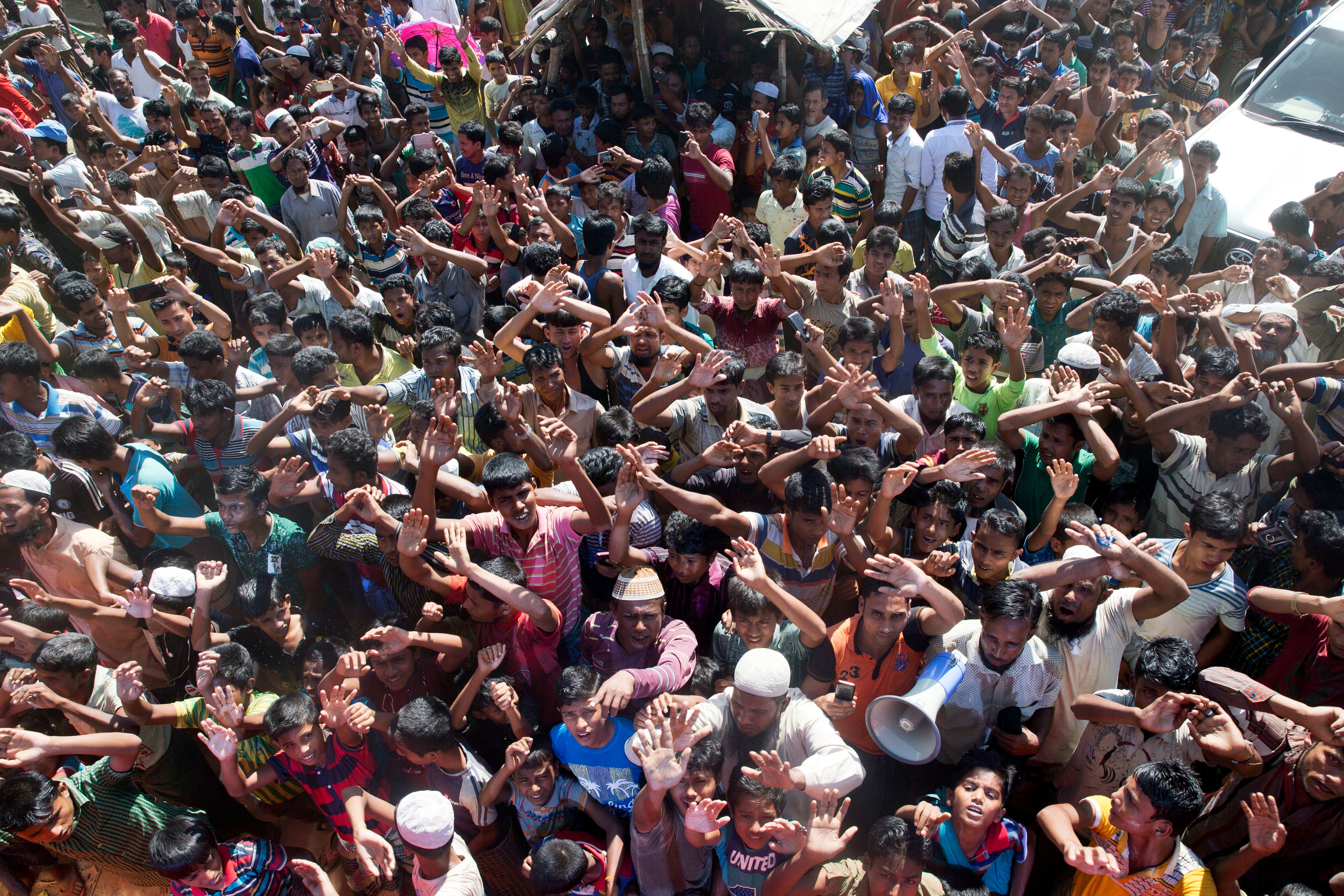UN chief: Rohingya must be part of Myanmar crisis solution
The United Nations chief is calling on Myanmar’s military-installed government to include ethnic Rohingya in a solution to the country’s political crisis

Your support helps us to tell the story
From reproductive rights to climate change to Big Tech, The Independent is on the ground when the story is developing. Whether it's investigating the financials of Elon Musk's pro-Trump PAC or producing our latest documentary, 'The A Word', which shines a light on the American women fighting for reproductive rights, we know how important it is to parse out the facts from the messaging.
At such a critical moment in US history, we need reporters on the ground. Your donation allows us to keep sending journalists to speak to both sides of the story.
The Independent is trusted by Americans across the entire political spectrum. And unlike many other quality news outlets, we choose not to lock Americans out of our reporting and analysis with paywalls. We believe quality journalism should be available to everyone, paid for by those who can afford it.
Your support makes all the difference.Secretary-General Antonio Guterres called on Myanmar’s military-installed government Wednesday to include ethnic Rohingya in a solution to the country’s political crisis.
He commented on the eve of the fifth anniversary of the start of a mass exodus by the Muslim minority to Bangladesh to escape a military crackdown in Myanmar’s northern Rakhine state.
U.N. spokesman Stephane Dujarric said Guterres noted “the unflagging aspirations for an inclusive future" for the Rohingya, who face widespread discrimination in Buddhist-majority Myanmar. Most are denied citizenship and many other rights.
The long-simmering conflict with the Rohingya exploded on Aug. 25, 2017, when Myanmar’s military launched what it called a clearance campaign in Rakhine in response to attacks on police and border guards by a Rohingya militant group. More than 700,000 Rohingya fled to Bangladesh as troops allegedly committed mass rapes and killings and burned thousands of homes.
In January 2020, the International Court of Justice, the U.N.’s top court, ordered Myanmar to do all it could to prevent genocide against the Rohingya. Two days earlier, an independent commission set up by Myanmar’s government concluded there were reasons to believe security forces committed war crimes against the Rohingya — but not genocide.
In March 2022, the United States said the oppression of the Rohingya amounts to genocide after authorities confirmed accounts of mass atrocities against civilians by Myanmar’s military.
Guterres’ spokesman said that “perpetrators of all international crimes committed in Myanmar should be held accountable,” adding that “justice for victims will contribute to a sustainable and inclusive political future for the country and its people.”
Earlier this month, Bangladesh Prime Minister Sheikh Hasina told U.N. human rights chief Michelle Bachelet that some 1 million Rohingya refugees living in overcrowded camps in Bangladesh must return home to Myanmar.
“The Rohingya are nationals of Myanmar and they have to be taken back,” Hasina was quoted as saying by Bachelet's press secretary, Ihsanul Karim.
But Dujarric, the U.N. spokesman, said there are no immediate prospects for the Rohingya to return, noting that more than 150,000 Rohingya are still confined in camps in Myanmar's Rakhine state.
China brokered a 2017 agreement between Bangladesh and Myanmar to repatriate the Rohingya. But Hasina and other Bangladeshi officials have expressed frustration at what they call Myanmar’s inaction in taking them back. The Rohingya have balked at returning without having their longstanding grievances addressed.
Myanmar’s army ousted the country’s elected government in February 2021 as Aung San Suu Kyi's party was about to start a second term in office. The military takeover was met with widespread public opposition, which has since turned into armed resistance that some U.N. experts have characterized as civil war. Critics of the military have accused it of carrying out widespread human rights abuses.
Following the military takeover, Dujarric said, “the humanitarian, human rights and security situation in Myanmar has deteriorated.”
The secretary-general “underlines that the full and effective participation of the Rohingya people is an inherent part of a Myanmar-led solution to the crisis,” he said. “It is critical that the international community continue to seek comprehensive, durable and inclusive solutions to the crisis."
Dujarric said greater access to affected areas for U.N. humanitarian and development officials and their partners is “crucial.”